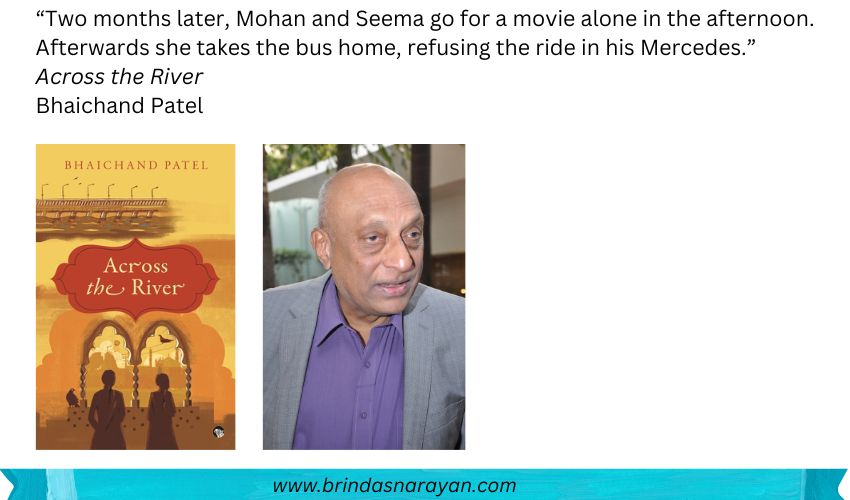
Dissolving Boundaries Across a River
Madhu Gupta and Seema Chaudhry have much in common. For one thing, they attend the same college. They live in old Delhi, in shabby apartments, reached by dim stairways. They stem from conservative, working class families. They wear salwar kameezes, unlike jeans-donning cool girls who attend the old college only because of their “poor grades.” They are smart and diligent, and unsurprisingly score a “first class” in their college exams.
But Madhu’s Hindu and Seema’s Muslim, and unfortunately, that creates an impossible chasm between their dreams and realizable futures. For Madhu, it’s a straightforward leap from slogging at college to landing a role in the accounts department at a garment factory. Hijab-wearing Seema has to contend with polite and impolite rejections: “Most times the look on the interviewer’s face when she enters gives the game away.” She keeps knocking on doors till a loathsome alternative – journeying to an uncle’s village and being married off – starts feeling like an only option.
Reminiscent of the manner in which a few light-skinned blacks tried to pass off as whites in a racially-charged America, Madhu suggests Seema adopt a similar, practical camouflage. That she tuck her hijab out of sight, and use her Hindu-sounding name to gain entry into a coveted cubicle. A hesitant but distraught Seema does exactly that. After all, her family desperately needs her income with the recent death of her father, Zafar Chaudhry. On Madhu’s recommendation, she’s hired into the same garment factory. Into the accounts department. The factory is located in chaotic, disquieting Noida, across the Yamuna River, a journey that will symbolize a larger change in the offing. Madhu warns her never to reveal her origins, because as she puts it: “The factory owner is a bigot.”
Unfortunately for the factory owner, his son Mohan, who is now the President of the company, falls in love with Seema. Of course, he doesn’t know she’s Muslim, doesn’t know what strata she comes from. She never lets him drop her home, though she’s privy to his lavish Mercedes and marble-mansion lifestyle. Seema herself is diffident about this relationship. She knows her precious Ammi, Jabeen, would never approve. Some cultural gaps seem too wide to bridge, even for young adults in the throes of a first love.
Segueing between the present and the past, Patel depicts how Mohan’s father’s biases originated in the first place. There was his upbringing of course, by conservative, Gujarati parents who would not veer from their worldviews or strict, vegetarian diets even on a fleeting trip to London. His own college dreams were thwarted. Instead, he voraciously lapped up Reader’s Digest magazines to improve his English and polish his persona.
There was also a covert affair with a Dalit woman, an offspring of a Minister’s mistress. And perhaps it wasn’t just lust, but a threatening, soul-destroying love that filled him with “rage and fear.” And it’s this, his terror of himself, that makes him despise his son’s choice of an “unsuitable” match.
After a few credible twists and turns, the heartbroken couple is reunited by the women in the family. By then, the owner’s dead and his wife feels strangely liberated from her husband’s judgments. As Patel shows us in a moving final scene, humans can always find common ground over shared rituals: like cooking dhal dhokri in a barebones kitchen. Perhaps it’s women—bold, unapologetic, and unyielding—who can shatter these cycles, question throttling traditions and transform fear into freedom.
About the Author
Bhaichand Patel is a globe-trotting columnist with a flair for the offbeat. A former director of the United Nations, a lifelong cinephile and foodie, his words have spiced up newspaper columns for decades. The author of Chasing the Good Life, Happy Hours: The Penguin Book of Cocktails, and Bollywood’s Top 20: Superstars of Indian Cinema, Patel’s storytelling is as colorful as his passport stamps—from Fiji to London, New York to Manila. A London School of Economics alum with filmmaking chops from NYU, he’s as comfortable dissecting a Bollywood classic as he is concocting a perfect cocktail.
References
Bhaichand Patel, Across the River, Speaking Tiger, 2024




